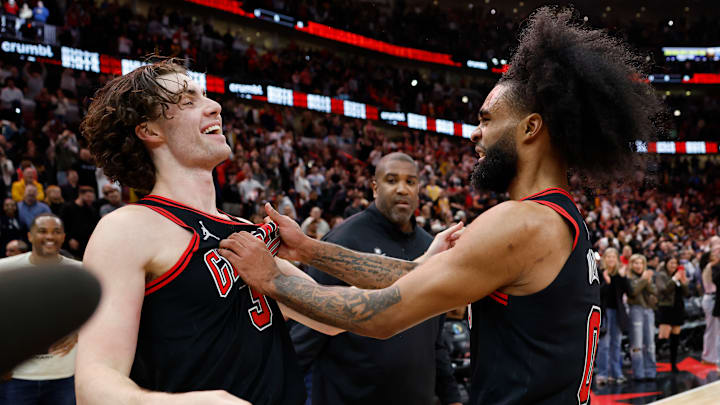When the Chicago Bulls signed Josh Giddey to a four-year, $100 million contract, Coby White gained invaluable leverage for his own potential negotiations. White will become an unrestricted free agent in 2026 and is reportedly looking for a new deal in the range of $30 million per season.
Considering that's just $5 million more per season than Giddey just received from the Bulls, it's easy to envision a scenario in which White has extraordinary negotiating leverage in 2026.
White is preparing to play his seventh season with the Bulls, which will undoubtedly be relevant once the negotiating process begins. He's the longest-tenured players on Chicago's roster, rivaled only by Nikola Vucevic and Patrick Williams, who will be playing their sixth seasons with the franchise.
Considering White is only 25 years of age, he's in a unique position to utilize both youth and experience as assets at the negotiating table.
What takes his case over the top, however, is the simple fact that White is the closest thing the Bulls have to a No. 1 scoring option. He's not only produced at an impressive level, but proven capable of facilitating winning with his efforts.
Whether or not White gets the full $30 million per season that he's looking for, Giddey has set the bare minimum for the scoring guard's next contract at that very $25 million per year figure.
Josh Giddey's new deal sets minimum for Coby White's contract
The debate isn't a matter of whether Giddey or White is the better or even more valuable player to the Bulls. Their games couldn't be any more different, much as their roles are defined in terms that rarely conflict with one another.
The simple fact remains, however, that White will enter his negotiations with Chicago having played seven seasons with the team compared to Giddey's one—and his skill set would be tough to replace.
White finished the 2024-25 season averaging 20.4 points, 4.5 assists, 3.7 rebounds, 0.9 steals, and 2.9 three-point field goals made on .453/.370/.902 shooting. He led the Bulls in scoring and three-point field goals made, and was second in assists.
Furthermore, the Bulls were 26-16 when White scored at least 20 points and 13-27 when he failed to—a clear indication of how important his scoring is to team success.
It's also worth noting that LaVine played his final game with the Bulls on Jan. 27. Chicago went 19-16 over the next 35 games, with White taking on the lead role as a scorer and maintaining his presence as one of the top playmakers on the roster, as well.
One also can't help but acknowledge the fact that the Bulls ranked in the 99th percentile in net rating across the 527 possessions during which Giddey, Kevin Huerter, and White shared the court.
If the Bulls turn in a postseason-caliber season and White thrives in his role as the No. 1 scoring option, his financial fate will be sealed. Chicago will have no choice but to pay him the $30 million that he appears to be searching for—if not more.
Regardless of what transpires, Giddey's new contract has set the stage for White to have a considerable amount of leverage during negotiations with the Bulls.
